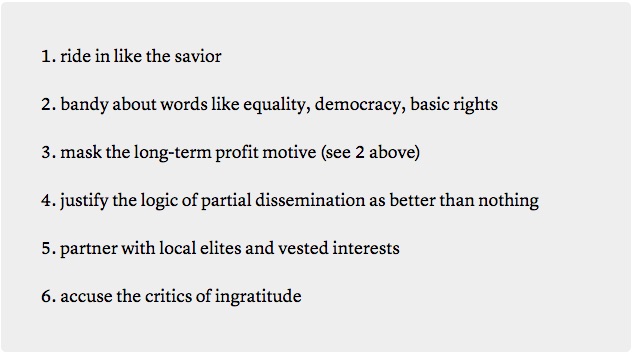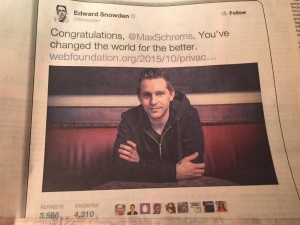From today’s New York Times:
The social network on Wednesday reached the latest milestones in its quest to dominate the world, topping 1.79 billion monthly visitors as of the end of September, up 16 percent from a year ago. Facebook also added a record number of new daily users and said for the first time that more than one billion people regularly used its network exclusively on their mobile device every month.
And those numbers do not even include Facebook’s other properties, such as the photo-sharing service Instagram and the messaging service WhatsApp.
Facebook’s user growth defies the usual trajectories for social media companies, which often start strong out of the gate and then sharply slow down. Twitter, which added four million new visitors last quarter, now serves a user base roughly one-sixth the size of Facebook’s. Snapchat, while popular among young users, has about 150 million daily users, about half as many as Twitter…


